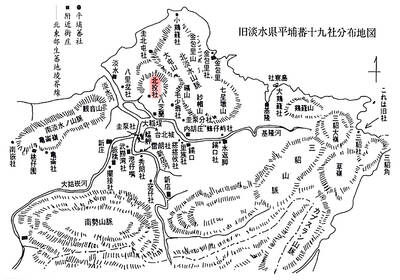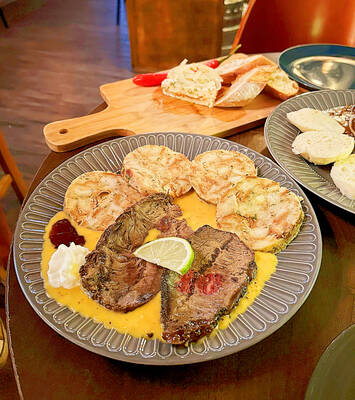Xianhui Yang’s (楊顯惠) Woman From Shanghai: Tales of Survival From a Chinese Labor Camp (上海女人—中國勞改場幸存者的故事), a newly translated collection of firsthand accounts that the publisher deems “fact-based fiction,” centers on what might be called the Gulag Archipelago of China.
Yang’s stories, which he painstakingly collected over a three-year period a decade ago, are the recollections of people the Chinese state branded as “rightists” in the late 1950s and sent to Jiabiangou (夾邊溝), a camp notorious for “re-education through labor” in the northwestern desert wastelands of Gansu Province. In his introduction, the translator, Wen Huang, explains that the camp, which was built to hold just 40 or 50 criminals, came to hold roughly 3,000 political prisoners between 1957 and 1961. All but 500 of them would perish in Jiabiangou, mostly of starvation.
When word of the soaring death toll reached the capital, Beijing began an investigation. In October 1961, the government ordered Jiabiangou closed and subsequently mounted an exhaustive cover-up. After Jiabiangou was shuttered, a doctor assigned to the camp spent six months fabricating the medical records of every inmate. In letters to family members, the cause of death was attributed to all manner of illnesses except starvation, a word that was never mentioned.
Though less well-known in the West than two other immense political disasters visited upon the Chinese people by Mao Zedong (毛澤東), the Cultural Revolution and the Great Leap Forward, the so-called Anti-Rightist Movement to which the subjects of Yang’s stories fell victim remains difficult to research because of continuing censorship. Chinese historians say this is partly because of the central role that Mao’s much revered successor Deng Xiaoping (鄧小平), now credited with putting the country on the path of economic liberalization, played in these ideological purges.
Yang first encountered stories of Jiabiangou’s horrors as a self-described idealistic youth, while working on a collective farm in the 1960s. Though Yang was skeptical at first, the stories stuck with him. Years later, when he was denied access to archives from this period and when queries to the government on the subject of Jiabiangou went unanswered, his research turned to what he calls China’s human archives: living people and their oral histories.
In this regard, Woman From Shanghai represents a remarkable contribution to the growing literature based on personal histories. Huang, the translator, has played an important role in bringing such work to an English-language audience. He also recently translated The Corpse Walker: Real Life Stories, China From the Bottom Up (中國底層訪談錄), a work by a giant in this budding field, the muckraking Sichuan journalist Liao Yiwu (廖亦武).
Readers of Yang’s book should not be put off by the frequent recurrence of common elements in these stories: the exposure to bitter cold; hunger so intense as to cause inmates to eat human flesh; the familiar sequence of symptoms that eventually leads to death; the toolbox of common survivor techniques, whether toadyism, or the manipulation of the vestiges of privilege that withstood even incarceration in this era of radical egalitarianism. It is through the accumulation and indeed repetition of such subjects that Woman From Shanghai draws its utterly convincing portrait of a society driven off the rails.
In one story, a man without medical training, pressed into service as a camp doctor, relates his dismay at watching a starving patient die after the only available remedy for the critically ill, glucose injections, fails. “Don’t blame yourself,” a qualified doctor tells him. “It was not your fault. We had brought him back to life twice already. His time had come. Nobody could have saved him.”
While the stories contain no sugarcoating and are frequently grim in theme, the reader consistently encounters the stubborn persistence of humanity’s best qualities. In the title story, a young woman travels to the labor camp to visit her husband, only to learn from reluctant fellow inmates that he has just died. In the face of threats from camp authorities, she collects his remains from a shallow grave and carries them home for proper burial.
Most moving of all is The Love Story of Li Xiangnian, a narrative about the persecution of a young man and the persistence of his ardor for his girlfriend. Li escapes from detention to reunite with her, only to be arrested again. Their touching reunion many years later, after the woman is married, would not be out of place in a Gabriel Garcia Marquez novel.

Seven hundred job applications. One interview. Marco Mascaro arrived in Taiwan last year with a PhD in engineering physics and years of experience at a European research center. He thought his Gold Card would guarantee him a foothold in Taiwan’s job market. “It’s marketed as if Taiwan really needs you,” the 33-year-old Italian says. “The reality is that companies here don’t really need us.” The Employment Gold Card was designed to fix Taiwan’s labor shortage by offering foreign professionals a combined resident visa and open work permit valid for three years. But for many, like Mascaro, the welcome mat ends at the door. A

The Western media once again enthusiastically forwarded Beijing’s talking points on Japanese Prime Minister Sanae Takaichi’s comment two weeks ago that an attack by the People’s Republic of China (PRC) on Taiwan was an existential threat to Japan and would trigger Japanese military intervention in defense of Taiwan. The predictable reach for clickbait meant that a string of teachable moments was lost, “like tears in the rain.” Again. The Economist led the way, assigning the blame to the victim. “Takaichi Sanae was bound to rile China sooner rather than later,” the magazine asserted. It then explained: “Japan’s new prime minister is

NOV. 24 to NOV. 30 It wasn’t famine, disaster or war that drove the people of Soansai to flee their homeland, but a blanket-stealing demon. At least that’s how Poan Yu-pie (潘有秘), a resident of the Indigenous settlement of Kipatauw in what is today Taipei’s Beitou District (北投), told it to Japanese anthropologist Kanori Ino in 1897. Unable to sleep out of fear, the villagers built a raft large enough to fit everyone and set sail. They drifted for days before arriving at what is now Shenao Port (深奧) on Taiwan’s north coast,

Divadlo feels like your warm neighborhood slice of home — even if you’ve only ever spent a few days in Prague, like myself. A projector is screening retro animations by Czech director Karel Zeman, the shelves are lined with books and vinyl, and the owner will sit with you to share stories over a glass of pear brandy. The food is also fantastic, not just a new cultural experience but filled with nostalgia, recipes from home and laden with soul-warming carbs, perfect as the weather turns chilly. A Prague native, Kaio Picha has been in Taipei for 13 years and